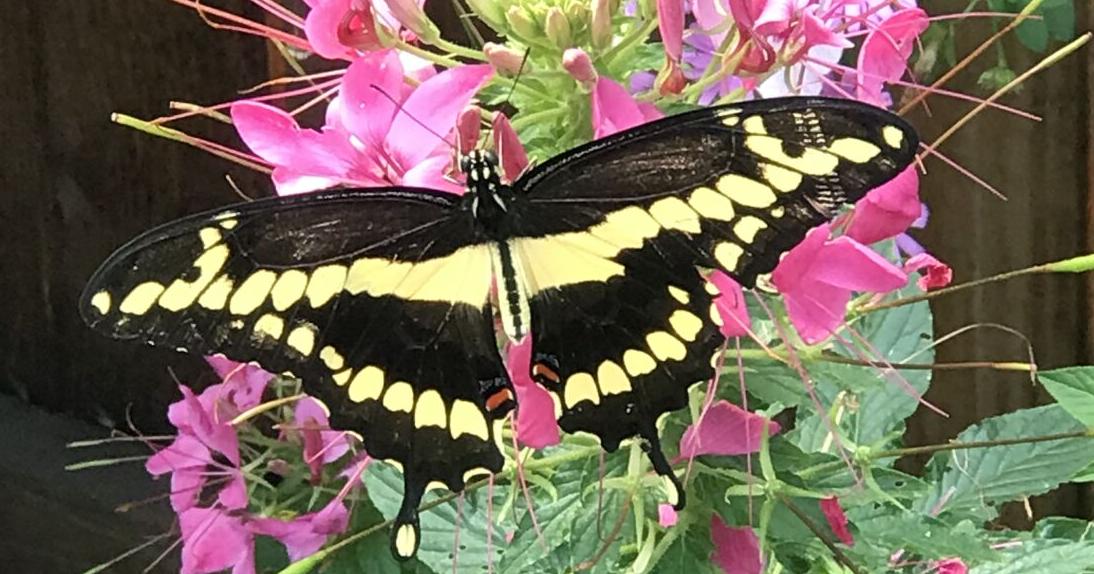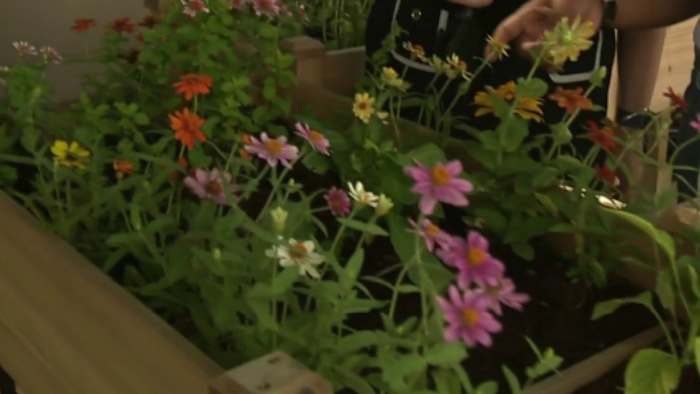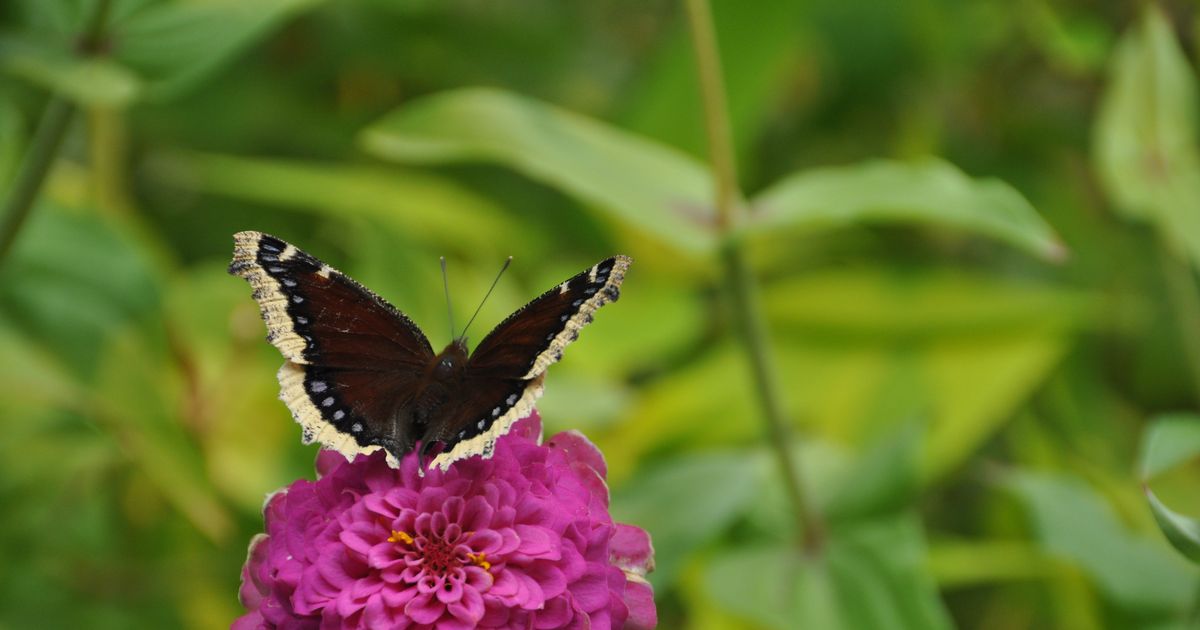A tiny, colorful fish and garden are growing community at a Dalton, Georgia, pre-kindergarten through fifth grade school.
Hot and sweaty from working in the garden, Carl Wilms, school gardener and facilitator at Park Creek Elementary School, described the gardening project and conservation work planned to protect the fish.
“The garden project has two main objectives. One is to get students outside and connected to the earth and produce and things like that,” Wilms said by phone. “The other is to help provide food for a community that experiences food insecurity in some families.”
Park Creek Principal Will Esters said by phone that the garden provides fresh produce to the community and helps build community itself. The conservation effort is separate from the garden, but Esters said the school district has been supportive of all the school’s nature-related projects.
“It’s a giant partnership with multiple federal, state and local entities,” Esters said.
The school owns 35 forested acres around the campus, and along that property line is a small tributary that Wilms said contains a breeding population of an endangered fish. The trispot darter is a 1- to 1.5-inch-long fish with an orange belly and iridescent blue bars on its side. The U.S. Fish & Wildlife Service lists it as a threatened species.
“That got Fish and Wildlife all excited, and a partnership has grown out of there,” Esters said.
The partnership includes several local conservation organizations that partnered with the school system and the federal conservation agency.
(READ MORE: ‘Soccer Town, USA’ thrives as schools in Dalton, Whitfield County add three more GHSA titles)
Because of the presence of the trispot darter, Wilms said the forest near Park Creek is being rehabilitated.
The forest near the tributary is full of invasive plants, he said, and this summer organizers are starting work to protect the watershed habitat. The forest is impenetrable due to overgrowth by Bradford pear trees and privet, but Fish and Wildlife rented heavy equipment to grind up some of those trees, he said.
“Hopefully we’ll have an outdoor classroom in there,” after the forest is restored, Wilms said. “But that’s down the road.”
The school’s garden, in its third year, is nearly a full acre, Wilms said. Most of it is a milpa garden, a traditional form of agriculture developed in the forests of Mexico and Central America.
To create a milpa garden, Wilms said, part of the forest is cleared to plant corn to provide trellising for beans, melons and other vining produce. The next year, the gardeners let the forest slowly grow back naturally.
“Over the next five years, the produce would wane because the forest is coming back,” he said. “And so they had five-year rotations where every year they would start another plot of land through clearing, and over the progression of five years they would let it go back to forest, which is very sustainable for the soil.”
One community member who grew up in Mexico reminisced about working in family gardens as a child, Wilms said.
This is the first year of success in the milpa, he said, because a drip irrigation system has been installed. Melons, beans and other produce are coming along, Wilms said, and the beans will help improve the soil for next year.
(READ MORE: Dalton, Georgia, school bus drivers reach deal to end strike)
Another garden features two greenhouses and was planted with seeds donated by a seed company, he said. A friend of the garden donated potato starts, and Wilms said some of those were just harvested. Other vegetables will be ready throughout the summer and fall and will be distributed to neighbors.
As part of the grant that supports his position, Wilms said he is hosting gardening workshops.
The year-long grant from the U.S. Department of Agriculture is for about $87,000, and Wilms said he expects it to be renewed for another year. He was hired in January.
The workshops will cover planting a garden, how to start seeds and how to work with a drip irrigation system. Wilms said he is working to have a translator at the classes if needed. More than 85% of Park Creek’s students and more than 70% of the district’s students are Hispanic, according to the school’s website.
“We’re going to cover everything people should consider when they’re planting a garden,” Wilms said.
There will be two sessions of five weekly classes, one from 9-10 a.m. starting July 11 and the other from 6:30-7:30 p.m. starting July 12. At the end of the program, everyone who attends three of the five classes for their session will be given a drip irrigation system.
Community members interested in the gardening classes can contact Wlims at [email protected].
Wilms said he hopes to get more teachers and students integrated into the garden next school year.
“The partnership, as they call it, of everyone involved in the conservation and the garden all together is a very positive group,” he said. “And they are very conservation minded and education minded — and that fits my needs very well.”
Contact Andrew Wilkins at [email protected] or 423-757-6659.









